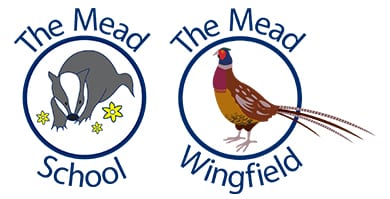Underpinning principles: A culture of opportunity
Inclusive education is about embracing all, making a commitment to do whatever it takes to provide each student in the community – and each citizen in a democracy – an inalienable right to belong, not to be excluded. Inclusion assumes that living and learning together is a better way that benefits everyone, not just children who are labeled as having a difference. Falvey, Givner and Kimm, 1995, p8
A cuture of opportunity in our school is characterised by:
Inclusivity Difference is acknowledged and celebrated, individual achievements are recognised and every member of the community has a voice. Where barriers exist, different approaches and opportunities are sought to ensure that there is an equitable experience for all. Children are empowered to be active learners with a sense of responsibility, ownership and independence with an explicit ambition for them all to succeed.
Celebrating Difference and Challenging Discrimination Children are supported to live responsibly and peacefully in the spirit of understanding, tolerance, equality and friendship. Great value is placed upon the different experiences, ideas and opinions that exist within the school community. Children are encouraged to explore and value their own identity as well as to celebrate similarities and differences between one another. Teachers and children are asked to recognise and challenge their own prejudices and preconceptions, as well as those of others, and to think about the negative effects of both stereotyping and discrimination.
Personalising Provision Teachers ensure that all children who are vulnerable to underachievement are identified. Specialist support staff are deployed to support children to develop skills so that they can effectively and independently access learning opportunities. Evidence based ‘catch up, keep up’ interventions are used preventatively and as early intervention strategies to effectively minimise gaps in outcomes. Children with complex needs including those with SEMH are supported to succeed through highly personalised learning programmes, resources and approaches, including alternative and enhanced curriculums.
Understanding Social and Emotional Needs Children are supported to understand that life naturally has ups and downs. They are helped to recognise and acknowledge and manage the associated emotions they may feel at different times in their lives. Children who have more complex emotional and mental health needs are able to access a range of support including Emotional Literacy Support Assistants, social skills programmes, specialist nurtured learning, alternative and enhanced curriculums, mentoring, and counselling. The Thrive Approach is embedded within each school supporting the staff’s ability to understand what the children’s behaviour is telling us about their needs and how we can tailor their provision.
Sensory Approaches Children’s learning is multi-dimensional. Learning experiences that are developed around sensory experiences provide an ideal opportunity to assess the children’s level of thinking and involvement using the seven indicators of engagement (encompassing awareness, curiosity, investigation, discovery, anticipation, persistence and initiation) and support the development of personalised learning pathways. A sensory approach to learning enables speech, language and communication skills, including non-verbal communication, to be developed; social communication and interaction skills to be improved; as well as effectively supporting hyper and hypo sensory sensitivities.
Working with Families Parents/carers have a unique relationship with their child. Staff endeavour to work with each child and their family to create personalised one page profile which provide a holistic view of the child. With the child at the heart of all communication it is possible to work in true collaboration. A team of highly skilled specialist staff including PSAs, ELSAs and Relate Counsellors are able to support families effectively with specific needs.
Advocacy for Vulnerable Groups Senior leaders act as advocates for groups of children who are vulnerable to underachievement (for example, those children with Special Educational Needs and Disabilities; with English as an Additional Language; who come from Service families; who are Looked After; were pre-term; subject to ‘hidden sentences’; who access the Pupil Premium; who are undergoing medical treatment or have speech and communication challenges). The progress of these and other vulnerable groups is carefully monitored and the effectiveness of any interventions put into place assessed regularly. Inclusion Leaders, SENCOs and specialist resource base teachers are highly experienced in supporting colleagues to ensure that provision is effectively tailored to our unique pupil population.
Democracy The voice of all members of the school community is highly valued, including children, staff, parents/carers and the wider community. There are mechanisms for both formal and informal feedback opportunities. Views, opinions and ideas are always considered. Children’s Parliaments play a significant role in the democratic culture of the schools. Through this mechanism all children can contribute to a range of decision making processes.
Citizenship Young people are society’s future. As such they are supported to ensure they have the knowledge and skills to understand, challenge and engage with the main pillars of our democracy: politics, the economy and the law. Children are supported to develop responsible attitudes and awareness of their personal safety; about their rights and responsibilities which enable them to appreciate what it means to be a positive member of a diverse, multicultural society.
References
DFE (2012), Statutory Framework for the Early Years Foundation Stage Setting the standards for learning, development and care for children from birth to five, London, DFE
Falvey, M., Givner, C., & Kimm, C. (1995). What is an inclusive school? In R. Villa & J. Thousand (Eds.), Creating an inclusive school (pp. 1-12). Alexandria , VA : Association for Supervision and Curriculum Development.
